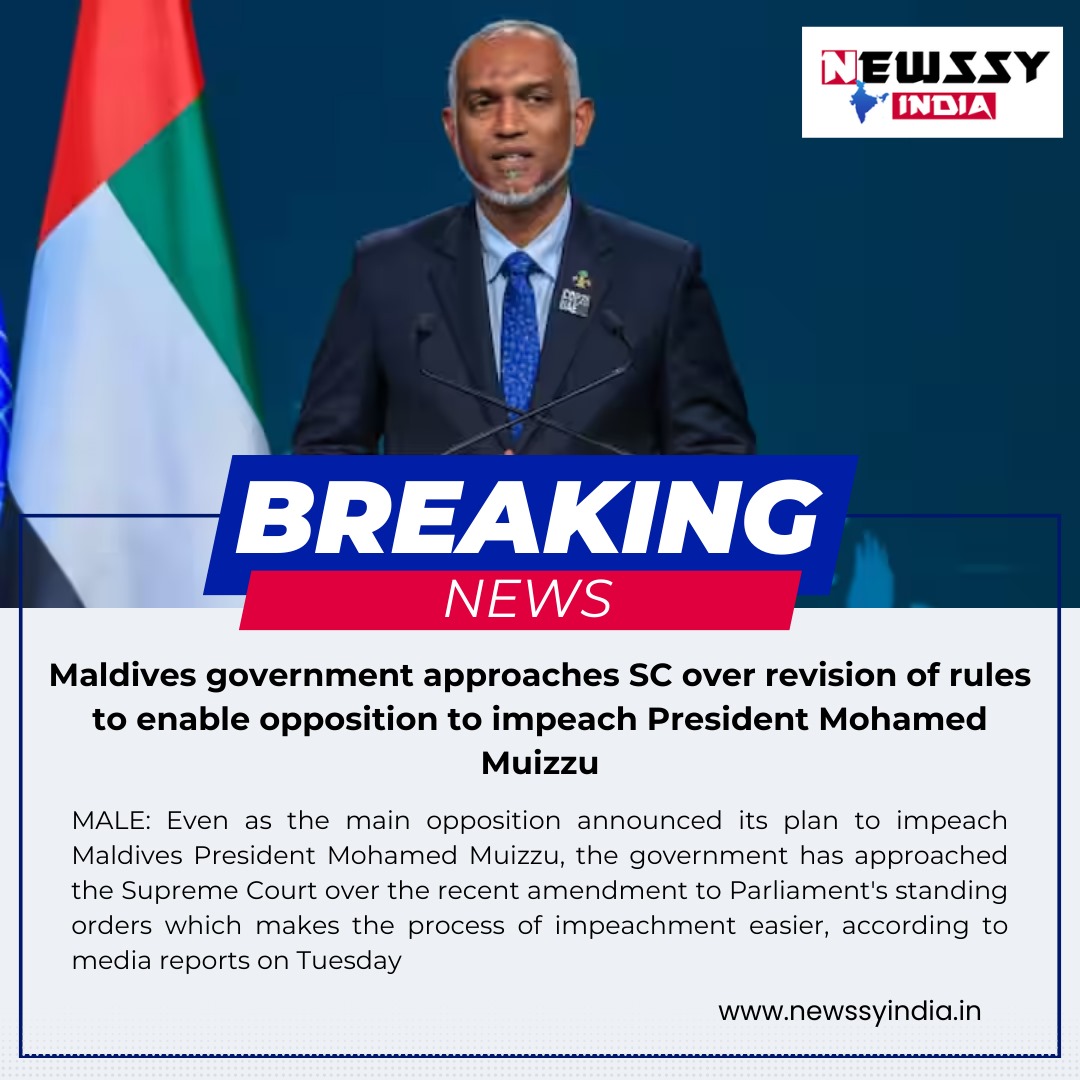The Maldives’ political landscape has taken a dramatic turn, with the government challenging a recent revision to Parliament’s standing orders that could pave the way for the impeachment of President Mohamed Muizzu. This development comes amidst rising tensions between the ruling party and the opposition, who hold a majority in the legislature. Here’s a breakdown of the situation:
The Impeachment Trigger:
The Maldivian Democratic Party (MDP), the main opposition, recently amended Parliament’s standing orders, reducing the number of votes required to impeach the President from 58 to 54. This change effectively lowers the bar for a successful impeachment motion, raising concerns within the government.
The MDP claims this revision aligns with the Maldivian Constitution, arguing that vacant parliamentary seats shouldn’t be counted towards the total when determining the threshold for impeachment. This stems from several pro-Muizzu lawmakers resigning to join his cabinet, creating vacancies.
Government’s Challenge:
The government, represented by the Attorney General’s Office, has approached the Supreme Court, contending that the rule change is unconstitutional. They argue it undermines the integrity of the impeachment process and violates established legal principles.
The government’s petition seeks to have the amendment declared null and void, potentially restoring the original threshold of 58 votes for impeachment. This legal challenge adds another layer of complexity to the already volatile political climate.
Opposition’s Motive:
The MDP, emboldened by their majority and the revised rules, has openly declared its intention to impeach President Muizzu. They cite several reasons for this move, including:
Disagreements with Muizzu’s foreign policy, particularly his perceived tilt away from India, a traditional ally of the Maldives.
Concerns about alleged corruption and human rights abuses under his administration.
A desire to hold the President accountable for what they perceive as unfulfilled campaign promises.
Muizzu’s Position:
President Muizzu has condemned the impeachment attempt as politically motivated and an attempt to destabilize his government. He maintains that the accusations against him are baseless and that he has acted within the bounds of the Constitution.
Muizzu has expressed confidence in the judicial system and called for a fair and transparent investigation into the impeachment process.
Potential Implications:
The outcome of the Supreme Court case will have significant ramifications for Maldivian politics. If the court upholds the government’s petition, it could significantly complicate the opposition’s impeachment efforts. However, a ruling in favor of the MDP would pave the way for a potentially tumultuous impeachment process.
Regardless of the court’s decision, the current political standoff is likely to further polarize the Maldivian society and raise concerns about the country’s democratic stability. International actors, particularly India, are closely monitoring the situation and may intervene if the crisis escalates.
Additional Points to Consider:
The role of independent institutions like the judiciary and media will be crucial in ensuring a fair and transparent process, regardless of the outcome.
The international community’s response to the developments in the Maldives will be significant, potentially influencing the course of the political crisis.
The economic and social impact of the ongoing political uncertainty remains a concern, requiring careful management by the government and various stakeholders.








